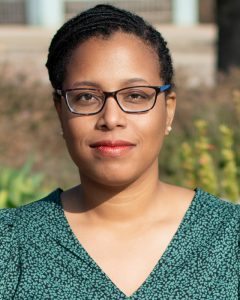When selecting resident scholars from the many who apply, SAR places special emphasis on applicants’ demonstrated ability to write in ways that make their work accessible to the widest possible audience. Our scholars use their fellowship year to hone those writing skills while finishing their diverse research projects. It is no surprise, then, that after leaving SAR many of our alumni manage to publish books and articles that move past the boundaries of academic writing to catch the attention of a national readership.
One recent example is “Nantucket Doesn’t Belong to the Preppies,” published in the June 2021 issue of the Atlantic by Tiya Miles. Miles, a historian and SAR resident scholar in 2007–2008, is the Radcliffe Alumnae Professor at the Radcliffe Institute for Advanced Study at Harvard. As the title of her article suggests, Miles takes her readers beyond the stereotype of Nantucket as the playground of the white and wealthy to review its ethnically diverse history, which includes residents of African and Wampanoag descent, as well as working-class immigrants from Cape Verde, the Caribbean, and Ireland. Free Blacks established a small village on the island as early as the mid-eighteenth century. According to Miles, “intermarriages followed between Black and Native people from Nantucket, Martha’s Vineyard, and Cape Cod, turning the village that was now known as New Guinea (and sometimes as Newtown) into a multicultural hub.”
Another remarkably prolific SAR alumnus is David Treuer, a professor at USC and a former Katrin Lamon resident scholar. His article in the September 5 issue of the New York Times Magazine offers an intensely personal account of an Ojibwe tradition called the Big Drum, a ritual that “exists to heal people from physical, psychological and social pain and grief.” Through the stories of other Ojibwe people, Treuer reveals the power of the ritual to help those in pain recover a sense of well-being and balance. He himself plans to undertake the Big Drum in the coming months to “wash away the loss of my father, and my friends, and the many who have died from Covid and the many who have died and continue to die at the hands of the police and the republic.”
Talented alumni like Miles and Treuer consistently inspire us to achieve our vision—“to be a nexus of scholars and artists, creative thinkers and curious learners, where we exchange ideas, bring life to history, explore the present, and broaden perspectives in pursuit of a more informed and equitable society.”
Michael F. Brown
President, SAR

